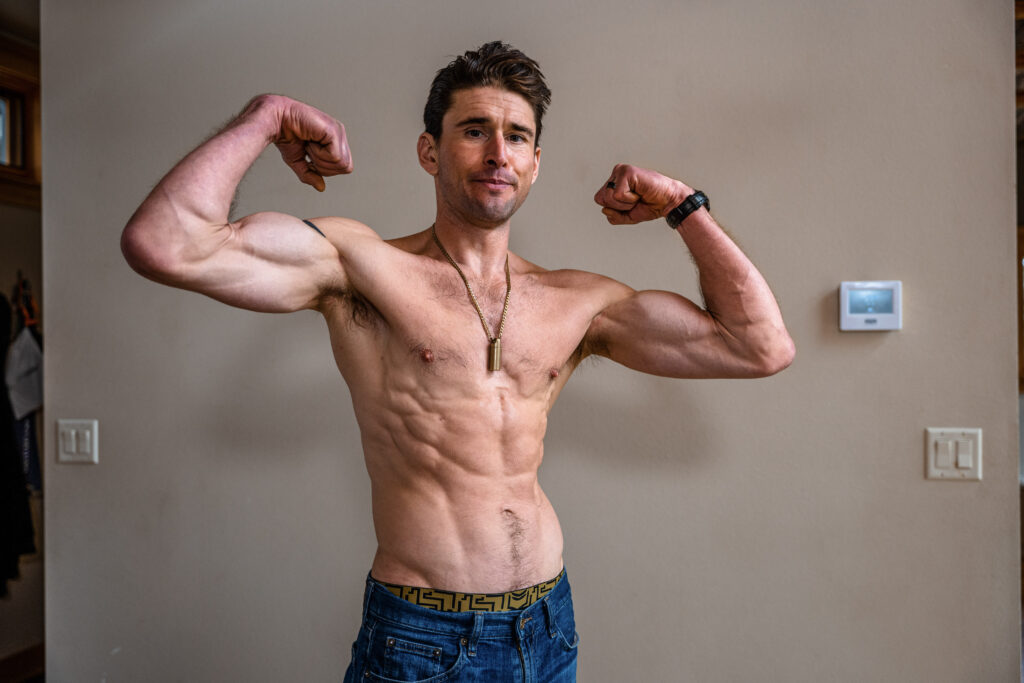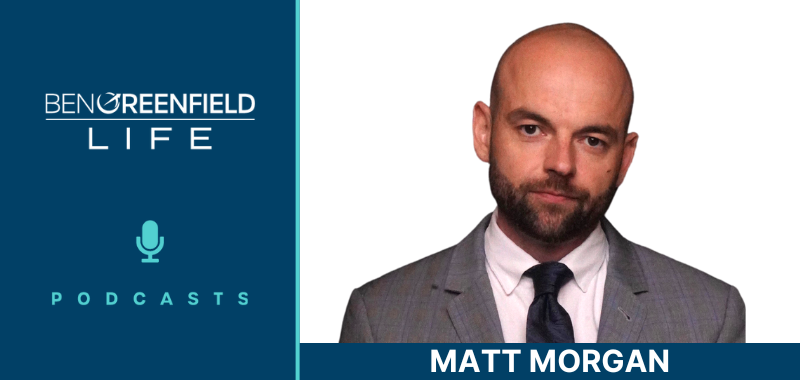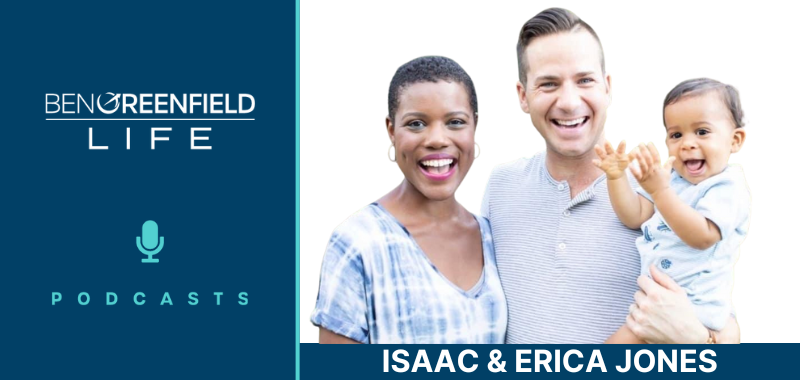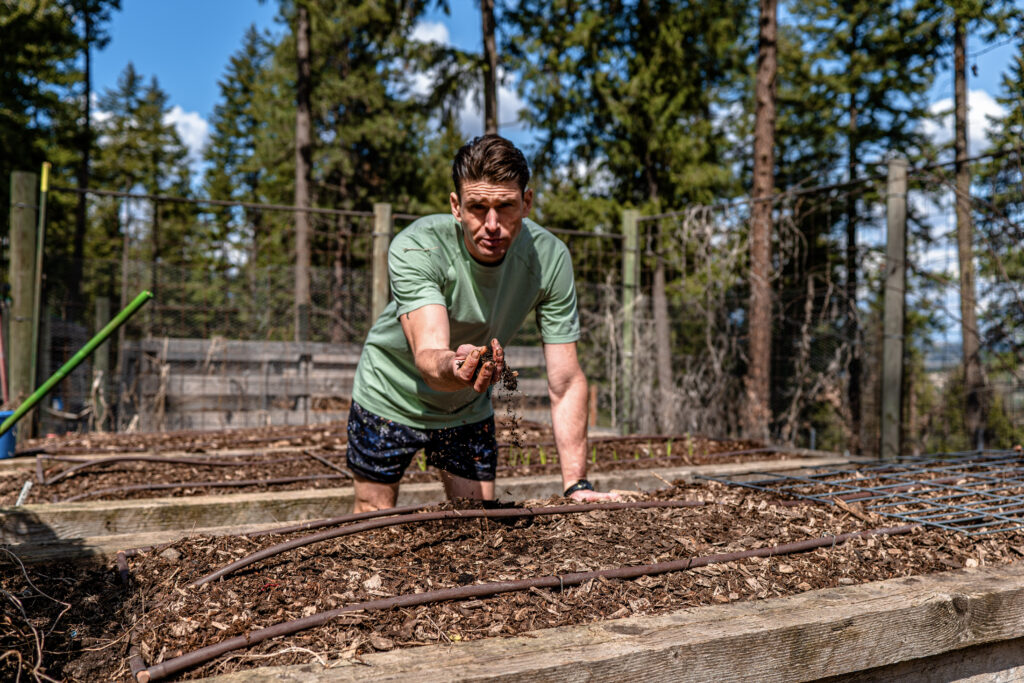May 30, 2021
Comedian, podcaster, and UFC commentator Joe Rogan has a fascinating thought about how parenting has changed the way that he interacts with people.
On multiple podcast interviews, Joe describes how having children of his own forced him to realize that we were all babies and children at one time, and that many adults are just kids walking around in a grown human shell, still thinking and acting with many of the same built-in belief patterns, habits, tendencies, temptations, and struggles as they experienced in childhood, often simply molded and shaped by a multitude of life experiences that have happened since the time they were a tiny, crying newborn baby, but not as far removed from who they were as a child as we might be led to believe.
Your doctor was once just a nerdy kid who was fascinated by the human body.
The greatest violin virtuoso used to be four feet tall, standing in their bedroom with a tiny bow, trying to squeak out a teeth-gritting version of Twinkle, Twinkle, Little Star for the first time.
Your favorite fantasy fiction author used to be a freckle-faced adolescent who would hunch over his keyboard sipping on a soda and scratching her head about how to describe a dragon.
The biggest Hollywood actors and actresses used to be tiny humans nervously huddled backstage at the school play, reciting their lines over and over again and hoping they didn't mess anything up.
Prolific modern-day inventors and business figures like Elon Musk, Richard Branson, and Bill Gates used to be teenagers tinkering in the garage with model airplanes, computer hard drives, and mail-order robot kits.
Your husband, your wife, your mother, your father, your brother, and your sister—at a time really not too long ago—were pooping in their diapers, learning to awkwardly take their first step, throwing a tantrum, snatching away some other kid's precious toy, and checking under the bed and in the bedroom closet for scary monsters.
Joe Rogan describes in many of his podcasts in which he discusses parenting how, when someone says something to him that could be potentially upsetting, controversial, insulting, or just plain silly, now that he's a parent he really doesn't judge them quite as harshly nor allow his own feelings to get hurt because he's come to the realization that everyone is just a grown child inside an adult-sized meat suit, still picking one shallow fight after another with each other, buying bigger and bigger toys, eating, drinking, pooping, laughing, masturbating, crying, talking and seeking entertainment and self-pleasure to deliver the surges of dopamine we are all hard-wired to crave, often abusing or misusing others to satisfy that craving.
There are some shreds of truth to Joe's thoughts. After all, just because you're in possession of a full-grown body doesn't mean there's a responsible adult mind and soul inside. Just because you're a parent doesn't mean you're not still stricken with imposter syndrome and simply trying to stay “one step ahead” of your own kids in learning what it really means to be a parent, or even an adult for that matter. Just because you're supposed to “get a real job” to work to provide for and protect yourself and your family, that doesn't mean you don't still enjoy and find purpose in the same kind of activities and hobbies you enjoyed doing when you were a little kid.
Furthermore, there can be a great deal of value in not completely forsaking childhood. As I write about here, trauma doesn't have to necessarily involve some kind of intense, readily identifiable physical or spiritual event that noticeably scars you, but rather, as addiction, stress, and childhood development physician Gabor Mate notes, can simply be a “disconnection” from the true self who we were quite intimately connected to a child. In addition, as I write about here, you should always retain in your life the joyful elements that came so easy to you when you were a child, such as dancing, singing, and dreaming, and that the fading away of our youthful, happy, and carefree dreaming, singing, and dancing can occur gradually over an extended period of time as we become more and more mindful of fulfilling the basic survival elements of Maslow's hierarchy of needs (find food, make money, start a family, get a home, etc.) and more and more obsessed with and satisfied with doing, accomplishing, and producing to the ultimate and sad sacrifice of being, savoring, and creating.
So what can we learn from this observation that we really are simply “grown human babies,” each carrying many of the same tendencies and habits—both good and bad—that we did as children? I think there are three valuable lessons here: 1) empathizing with others in a different way; 2) coming to the self-awareness that certain elements from childhood that no longer serve us, serve others or serve God should be left behind; and 3) we should always retain in our lives some semblance of the magic and joy of childhood.
See Others As Grown Children
In my “shoes” article, I taught you a simple thought and visualization exercise that allows you to truly be able to implement more empathy and a greater practical practice of the Golden Rule into your life.
In case you don't have time to read that article, the basic idea was this: you can quite literally translocate yourself and, as though you were playing a movie in your mind, look at yourself through the actual eyes of anyone with whom you are interacting. Through the function of mirror neurons in your brain, this can allow you to really, truly feel what someone else is thinking, experiencing, and feeling as they interact with you, and allow you to adjust your own interactions with them to better sympathize, better empathize, and better communicate.
Very similarly, you can, based on this concept of everyone once being a child, see each adult human you interact with as someone who was once a baby.
Is your co-worker “throwing a tantrum”? Consider smiling at them, telling them everything is going to be OK, and perhaps fetching them a soothing coffee and a snack, just like that warm bottle of milk your mother delivered to you when you were a crying baby.
Is your husband or wife feeling down or depressed? Hold them, hug them, caress their hair, snuggle them, pray with them. Remember how good it felt when you were sad and your parents or another adult who cared simply gave you a hug?
Are you frustrated with the actions of a politician or a leader or an employer? Write them a letter. Tell them how you're feeling. Vulnerably share your thoughts and emotions. Think back to when you were a kid and someone actually explained to you how they were feeling or why they were angry or impatient with you or why they made a certain decision. Don't assume these grown-up kids in some omniscient way know how their actions are affecting you. Maybe they never learned that in the days, weeks, months, and years since they were just getting a bath, taking a nap, and running around a playground somewhere. So tell them.
This practice can drastically change the way you interact with, view, and judge people. It can soften the way you treat them. It can transform your interactions with others into something more like the more gentle, loving, forgiving, and patient interaction you'd have with a baby, or with a child.
See, we're all just humans and we're all just basically grown-up baby humans.
So don't assume someone is “grown-up.” We were all children once. Imagine all those influencers, all those gurus, all those teachers, all those employers, all those employees, all those lovers, all those adult bullies, all those in your life who you may be tempted to be fearful of, to disagree with, to argue against or to harshly judge as children. See them in your mind's eye as an awkward young boy or as a cute little girl who might be just a tad bit older now. Imagine them as a child, or even as a baby. Put yourself in their shoes.
Understanding and practicing this concept will give you more patience, more empathy, and more sympathy. Try it.
Leave Childish Things Behind
Next, now that you can hopefully see what it's like when many of those people around you act as though they haven't grown up as much as you'd expect, use that as inspiration to do a bit more growing up yourself, so that you're not personally acting as a giant, grown-up human baby in an adult shell. As Paul says in 1 Corinthians 13: 11, “When I was a child, I talked like a child, I thought like a child, I reasoned like a child. When I became a man, I put the ways of childhood behind me.” and later in Ephesians 4:14, “…we should no longer be children, tossed to and fro and carried about with every wind of doctrine, by the trickery of men, in the cunning craftiness of deceitful plotting.”
If you get angry or stressed over small and pointless, meaningless or trite things (your spouse drinks all the morning coffee, your kids barge in on an important phone call, or someone is using “your machine” at the gym), tend to assume everything revolves around you (you narcissistically hog the bathroom, you're always first in line to get food at a party, or you're unwilling to sacrifice your precious yoga class or lunch hour to go help someone in need), and get upset when things don’t go your way (waiting in line stresses you out, you get angry when you can't get a restaurant reservation, or you throw a tantrum when the Uber takes 20 minutes to arrive) and you generally treat others as though their sole purpose is to serve you, then you might indeed be living in an emotionally stunted childlike state, often described in modern psychology as Little Princess or Peter Pan syndrome.
One perfect example of the detrimental societal effects of this hanging on to irresponsible childish tendencies and living as a grown child in a sort of lifelong Peter Pan syndrome is the alarming and increased prevalence of fatherlessness, which has become what I would consider to be an epidemic, especially in America, but also beyond. As I write about here, if it were classified as a disease, fatherlessness would be an epidemic worthy of attention as a national emergency. More than 20 million children live in a home without the presence of a father. Millions more children have fathers who are physically present, yet emotionally absent. You can click here to read plenty more statistics on the sad extent of fatherlessness.
A major contributor to this epidemic is the fact that many modern men are wandering through life as grown humans on the outside, but as mentally, emotionally, and spiritually immature boys on the inside. These men never experienced a formal recognition or ceremonial transition into adulthood, and consequently are often left scratching their head and trying to figure out when they became a man or if they're even a man yet, and, worse yet, these grown male adults subconsciously or consciously consider themselves to be and even pride themselves on being a happy-go-lucky boy on the inside, free to drive fast cars, listen to loud music, hit the clubs until 2 am, and knock up as many women as one's heart desires, with complete self-permission to walk away from any responsibility, because, well, that's what little boys do.
Male rites of passage—which I explore in detail on this podcast and which are explained quite excellently in the book Leaving Boyhood Behind—begin with a separation from the tribe, followed by a transitional process of facing one's fears and dissolving one's ego through some kind of hardship or crucible, and finally, finish with a re-incorporation back into society with a ceremonial recognition that the new young man is now a responsible, contributory member of society. These types of rites have been woven into the fabric of culture and considered to be an integral part of a boy's transition into manhood for thousands of years, but are now noticeably absent in our modern, Westernized “cultured” tribes.
Mark my words: this absence of a male rite of passage is a time-honored tradition that we must reclaim. Masculine initiation in particular is a constant thread in ancient and classical literature and well-recognized figures of history. Achilles, for example, was handed over by his father to Chiron, a centaur, to be initiated into manhood. “Jack and the Beanstalk” is the story of a boy being separated from his mother, experiencing a battle with a giant, and finally liberating his father so he could become a man like him and reclaim his inheritance. Whether it’s Telemachus in The Odyssey or Daniel in The Karate Kid or Jesus Christ wandering in the wilderness for forty days, mature, capable and enduring masculinity is forged by these types of harrowing but necessary experiences.
Fortunately, many organizations, often in the realm of wilderness survival and nature immersion, still exist to systematize the process of a rite of passage for a young man. For example, you can begin by Googling a term such as “wilderness rite of passage NAME OF YOUR CITY for boys.” My own sons have experienced multiple solo, ego-dissolving days and nights in the wilderness between the ages of 7 and 13, with the most recent accompanied by a ceremonial coming of age and recognition of their passage into adolescence, all fostered by trained rite of passage guides at Twin Eagles Wilderness School. As a matter of fact, now that they are 13 and have completed their rite of passage, we don't even refer to them as “boys” anymore, but as sons, young men, fellows, or simply by their first name. They are equipped, not just physically, but also mentally, emotionally, and spiritually, to now become kings, leaders, fathers, and husbands for life. The rite of passage for your own boys doesn't need to be the same as mine, but hopefully, the examples above give you some idea of where to start. And yes, there's no reason that a full-grown adult male cannot also complete these same rites of passage. As the old Chinese proverb goes, “The best time to plant a tree is twenty years ago, or today.”
While women naturally go through rites of passage to womanhood that are deeply rooted in their physical and psychological makeup (such as the onset of menstruation or giving birth to a first child) the same process for men is notoriously absent. For women, the problem is that even these experiences are often not recognized, honored, or celebrated, but instead hidden, pronounced shameful, or given a casual head-nod rather than a formal acknowledgment of their extreme importance and significance in signaling that a girl is prepared to become a woman, a caretaker, a minister to her family and eventually, a great and noble matriarch.
Ultimately, we must—as parents, as families, and as a society that desires responsible adults who have left childish things behind—reclaim these rites of passage and weave into our education and child-raising practices a ceremonial recognition of the passage of a man or woman into adulthood.
Yes, we all used to be babies. But that doesn't mean we need to be that way anymore.
Retain The Magic & Wonder Of Childhood
While it's a good idea to focus upon empathetically putting yourself in other's shoes by seeing them as grown adults still struggling with many of the same temptations and tendencies from childhood, and simultaneously dedicate yourself to committing to set aside selfish and immature childish tendencies that don't serve you, you shouldn't necessarily completely forsake the magic of childhood.
As a matter of fact, when my twin sons recently set out upon their own wilderness rite of passage, I slipped them a letter full of observations, memories, and advice from me. One anecdote from that letter to one of my sons in particular went like this:
“…you have always loved good music, and always had a good voice too, from singing muppet songs when you were a toddler, to belting out praise and worship songs at church, to playing all your epic music during school time, or workouts or tennis. I see how much you are connected to music and song. I was the same way growing up…
…never, ever lose that love for music, and rhythm, and dancing, and singing. For some parts of my life, I lost my connection to the joys of singing and music but have since rediscovered it and the immense joy that instruments, singing, music, songs, bands, and even sound healing can bring to one’s life. Keep on singing. Keep on playing your favorite music, as loudly as you’d like. Keep on learning and playing instruments. Both your Mom and I come from families that loved music and it is woven into our DNA. I have a strong hunch it is woven into yours too…
…oh also, don’t ever give up on the other loves you've had since you were a baby, or think that they are so childish you need to leave them behind. Even as a man, they will bring joy to your heart. So don’t give up your love for music. Or your love for dogs. Or your love for comics. Or your love for amazing works of fiction. Or your love for throwing snowballs. Or your love for playing tricks. Or your love for chasing puppies with laser pointers. Or your love for jumping on trampolines. Never stop dancing, singing and dreaming. Always keep just a little bit of fun-loving, youthful Peter Pan inside you. You can be a responsible and dangerous man, and a funny, light-hearted joyful man too…”
So yes, do avoid full-blown Little Princess or Peter Pan syndrome, but do also keep a bit of Little Princess or Peter Pan inside you.
Go to the arcade.
Sing in the shower.
Learn good jokes, and be the person that tells those jokes at dinner parties and social events.
Go on bike rides through the neighborhood at night to go get ice cream.
Play silly card games at dinner.
Build sandcastles at the beach.
Have dance parties.
Sing more.
Lay in your backyard staring at the sky, hands clasped behind your head, and dream.
After all, even in the Bible, your transformation into a state of eternal happiness and salvation is described as a transformation dependent upon being like a little child. Matthew 18:3 says, “Truly I tell you, unless you change and become like little children, you will never enter the kingdom of heaven.” and Mark 10:15 likewise says, “Assuredly, I say to you, whoever does not receive the kingdom of God as a little child will by no means enter it.”
1 Peter 2:2 describes our love for the Word of God as follows, “…as newborn babes, desire the pure milk of the word, that you may grow thereby…”.
And when it comes to retaining the love of our childhood, Psalm 71:5 says, “For you, O Lord, are my hope, my trust, O LORD, from my youth.”
When I interviewed anti-aging and longevity expert Marisa Peer on my podcast, she described how surrounding ourselves with photos, memories, and activities from our younger years can inject youthfulness and vitality into our older years, describing studies in which older people were placed in a closed environment that resembled life 30 years prior, and the astounding results in their attitude, health, and longevity that resulted from that.
So yes, be responsible and mature and a contributory member of society who produces impactful work that loves God and loves others, but do so with a goofy smile on your face, a prank in your pocket, a voracious curiosity for God's creation, and perhaps the same kind of silly t-shirt with a witty slogan that you may have worn when you were ten. The world needs just a bit more responsible lightheartedness.
Summary
As I've written above, I firmly believe that it is crucially important to our societal stability that, like our ancestors, we learn how to weave into our culture a ceremonial recognition of passage into adulthood, and that we learn how to set aside the weaknesses of childhood that no longer serve us, God, or others. Sadly, many people simply can't say when they became a responsible adult, and when they set aside the silly, petty, irresponsible, or dependent elements of childhood. If you fall into that category, I challenge you to set out upon your own rite of passage, whether that be a wilderness excursion, a meditation retreat, a hunting trip, a sabbatical, or any other immersive, preferably solo experience in which you face your own fears, dissolve your own ego, inspect any elements of your own inner child that still remain with you, and give yourself the time and focus to dwell upon how you are going to serve the world as a responsible, contributory, adult member of society.
Yet, it's also important that you maintain a sense of childlike wonder and joy as you savor each and every element of God's Creation. In the same way that, in the last article, I told you that I consider myself to be a temperate Christian hedonist, I also consider myself to be a grown, responsible adult still infused with childlike wonder…
…still able to dance, sing, and dream…
…still plugged into enjoying, deriving satisfaction from—and even weaving into my own career in an act of self-actualization—those same productive and creative activities that I enjoyed and was good at as a child…
…yet also able to set aside the trite, silly, selfish habits and tendencies of that same child.
How about you?
When did you become an adult?
Are you an adult yet, or are you still a child in an adult's body?
Are you able to look at others who may be upsetting you with their selfishness, silliness, or other childlike tendencies, and remind yourself to be patient, to have mercy, and to treat them kindly, because they were once a baby, they were once a child, and they are still learning how to—or perhaps don't know how to—forsake those rash, reckless, foolhardy, or irresponsible elements of childhood that they carried into adulthood?
Are you able to accept the fact that all the wisdom and insight and experience and depth of knowledge that you think you have now may be something you look back at two decades from now and laugh at, and can you therefore apply that same thought pattern towards your interactions with those who may be years or even decades younger than you? Can you put yourself in their shoes when you were their age?
Related to that last question, allow me to finish with a thought-provoking poem by A. A. Milne, who you may recognize as the author of Winnie the Pooh, but who also penned the following, entitled: “Now We Are Six”
“When I was One,
I had just begun.
When I was Two,
I was nearly new.
When I was Three
I was hardly me.
When I was Four,
I was not much more.
When I was Five,
I was just alive.
But now I am Six,
I'm as clever as clever,
So I think I'll be six now for ever and ever.”
I'd love to hear your thoughts, comments, questions, and feedback below. I read them all.














Ben, thank you for the reminder. Adult resonsibilites and growing older can leave us caught up in the mundaine. I, for one, need to discover and get to know my inner child, or at the least, start to adopt more child like activities into my life. Menopause has been so incredibly difficult for me in this respect, as my body and thoughts have dramatically changed over the last 2 years. On that note, I beleive much more needs to be said about this transition in the life of every woman. I was not prepared and still struggle every day to reclaim “me”. I am enjoying your ramblings…
A very Powerful article Ben! I think you described two of the most worrysome Trends for Société on point.
Especially womens sacrifice to bear and Raise responsible children should be Honored and valued more by everyone.
Absolutely,
Does anyone have suggestions for what we could do for our daughter in law who has just given birth to our first grandson, and is becoming an incredible mom!
We need to plant this tree today!
I have appreciated Ben’s sharing his values especially since the pandemic, (or maybe I have paid more attention since then…). The constant pursuit of truth, questioning, considering, and in his case, experimenting, rinse and repeat… Specifically of helping those of us working on ourselves, Ben is helping redeem the drive to be the best we can, distrust of “authority”, non conformity, competitive natures… Redeeming it away from what would be narcissistic, chasing after the wind, a life lived within our control.
It would be cool to see comments from others!
Another VERY GOoD post. I especially appreciate the reminder to maintain that child like spirit of faith, wonder, joy while letting go of childishness. Thank you Ben.
This is all incredibly accurate. As a coach, I see this pattern often and encourage clients to break it through ceremony. Convesely, whenever I am meditating, doing breathwork, or investing some time to walk around and look up at the sky, I am flooded with images and vivid memories of childhood. We get to choose which inner child we feed. The one loaded with trauma learning, or the one in wonder.
Great feedback, thanks Kyle!
Excellent observations Kyle